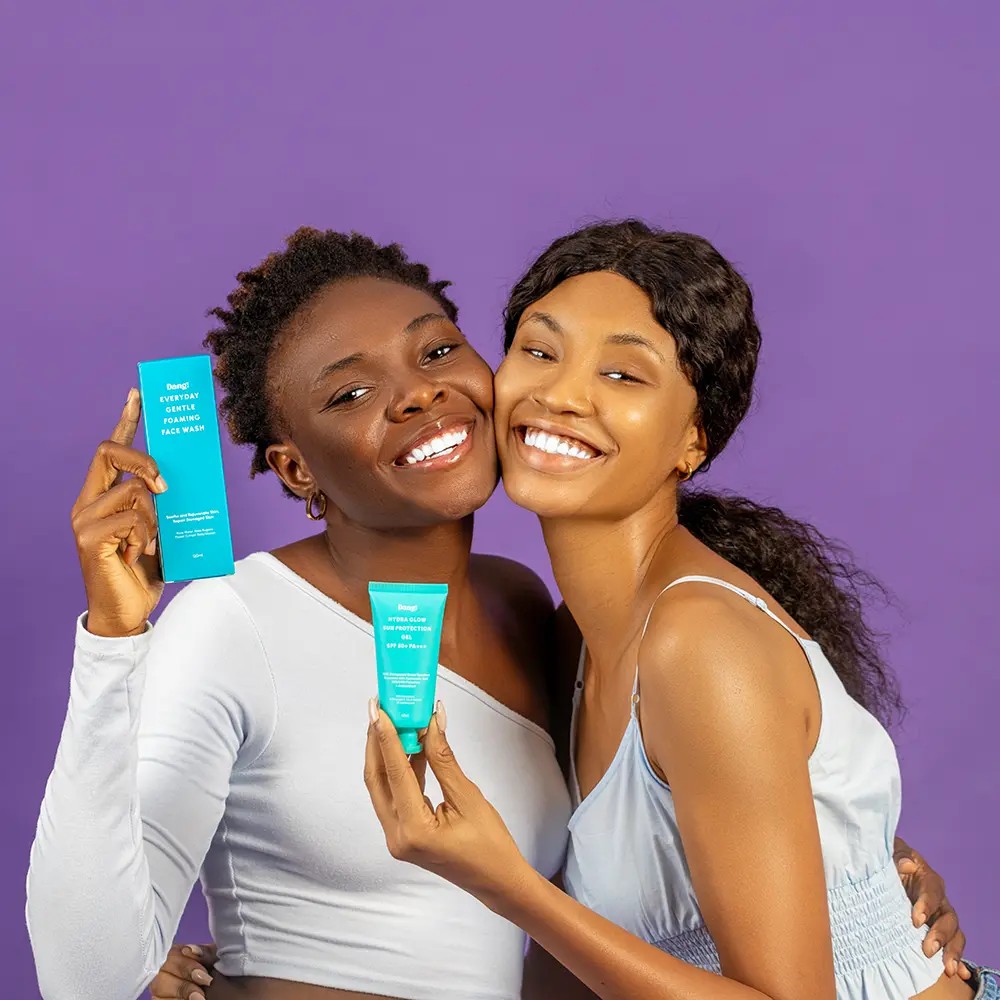
Spend ₦300K+, Get 20% Off Spa Treatments!
All prices shown include the discount
Up to 40% Off Sitewide. June 30th - July 7th.
Up to 40% Off Sitewide. June 30th - July 7th.
Up to 40% Off Sitewide. June 30th - July 7th.

Spring is here, and it’s time to change to a spring-focused skincare routine. However, you’re not sure what to replace or what to leave in your routine. We’ve got you.
In this guide, we’re walking you through a spring skincare routine built for YOU, simple, effective, expert-recommended tips and skincare products that work.
Spring calls for a lighter, more protective skincare routine, especially for melanin-rich skin. Swap heavy moisturisers for lightweight ones, use gentle exfoliants to refresh your glow, and don’t skip sunscreen even on cloudy days.
Serums like niacinamide or vitamin C can help tackle hyperpigmentation, while antioxidant-rich products soothe allergy-triggered flare-ups.
Overall, with these simple tips, you can maintain a balanced, protected, and radiant complexion all season long.
As the weather warms up, sebaceous (oil) glands become more active, which can lead to:
With increased exposure to the sun during springtime, individuals with darker skin are likely to experience;
Many people assume melanin-rich skin doesn’t need sunscreen. This is a myth.
UV rays in spring are stronger and can worsen dark spots and lead to premature ageing.
Spring allergens can irritate sensitive skin, causing:
Change to a gentle gel or foaming cleanser.
Look for ingredients like glycerin or hyaluronic acid to maintain moisture.
To prevent buildup and promote an even tone:
Swap heavier moisturisers for lighter formulas with humectants like:
Spring sun exposure can intensify dark marks.
Therefore, in your spring skincare routine, use products like niacinamide, azelaic acid, or vitamin C serums to fade dark spots and brighten overall tone. If you’re battling hyperpigmentation like dark spots, these acids are your best allies for treating dark spots.
Ultimately, adding targeted treatment serums to your routine can be an absolute game-changer. It targets common skin concerns at their core, giving you maximum results.
Constant exposure to the sun and other sources of UV radiation can cause premature skin ageing. I mean, we are all going to age, right?
But the sun can make it happen much faster than usual. So, use your sunscreen daily.
Choose a broad-spectrum SPF 30 or higher.
Want to avoid the dreaded whitecast common with most sunscreens?
Let me let you in on a secret! Opt for products labelled as invisible finish or transparent sunscreen.
Products like the Face and Body Mineral sunscreen (Mineral sunscreen for oily melanin skin) or the Hydraglow Sun protection Gel (100% transparent sunscreen) from Dang! Lifestyle – the best melanin-friendly skincare brand will provide you with maximum sun protection without making you look like a ghost.
For over 3 years, women of colour have been trusting us with their skincare needs. It’s been an honour helping them regain their confidence and feel beautiful in their authentic skin colour.
Why, so you may ask? This is because in spring, our dark skin tends to produce more sebaceous (oil) glands. Excessive oil underneath the skin can lead to clogged pores and breakouts.
So, it’s best to control it by;
In spring, your skin might be prone to flare-ups due to free radicals in the atmosphere. So, in your spring skincare routine, prioritise using barrier-repair products to strengthen your skin’s defence.
Also, opt for products with botanical extracts that are rich in antioxidants that can help combat flare-ups like eczema and rashes.
Yes. It’s possible to experience dry skin in spring. As your skin adjusts from the cold, dry winter air to warmer temperatures and increased pollen levels. All of these seasonal transitions can disrupt your skin barrier, leading to dryness or sensitivity.
To prepare your skin for spring:
Acne can worsen in spring due to increased humidity, rising temperatures, and seasonal allergies. These factors can lead to excess oil production, clogged pores, and inflammation. Pollen and other allergens can also irritate the skin, triggering breakouts in acne-prone individuals.
It is okay to use vitamin C in spring, especially in the morning. Vitamin C is rich in antioxidants that can protect your skin from free radicals and allergens in the atmosphere.
However, ensure to always use sunscreen in the morning.
In stock
$24.00 Original price was: $24.00.$22.40Current price is: $22.40.
In stock
$38.00 Original price was: $38.00.$35.50Current price is: $35.50.

DANG! LIFESTYLE
Connect with us
Exclusive offers, a heads up on new things, and sightings of Dang! #DangLifestyle
Customer Support
+2349073332942
Copyright © 2025